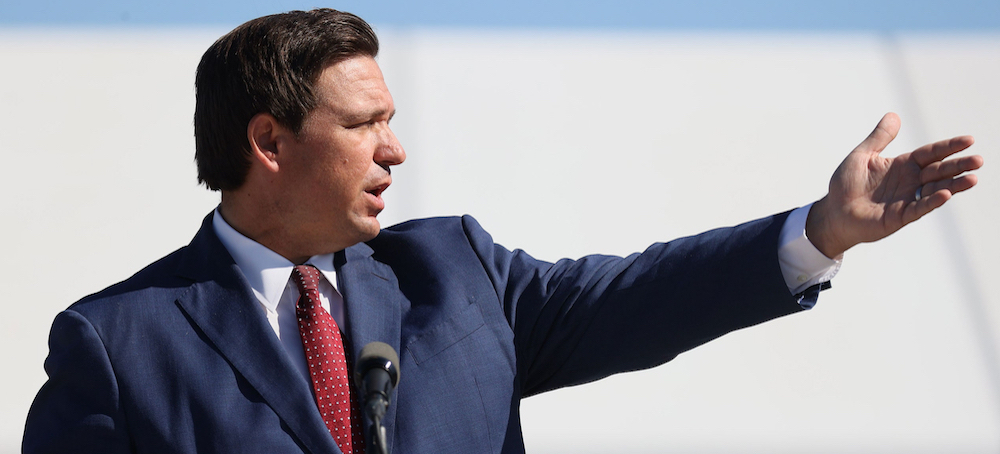Federal Judge Tells Ron Desantis to Sit Down And STFU
Bess Levin Vanity Fair Governor Ron DeSantis of Florida. (photo: Joe Raedle/Getty Images)
Governor Ron DeSantis of Florida. (photo: Joe Raedle/Getty Images)
The judge blocked Florida from enforcing its anti-free speech law restricting conversations about race, calling it “positively dystopian.”
In a 138-page order, chief US district judge Mark Walker blocked state officials from enforcing a central piece of the Stop WOKE Act, which he dubbed “positively dystopian” and says violates the First Amendment. Citing George Orwell’s 1984, Walker wrote that DeSantis and company seem to believe that “the State has unfettered authority to muzzle its professors in the name of ‘freedom,’” which is quite obviously not freedom at all. Zeroing in on the fact that the law targets freedom of expression that DeSantis and his fellow Republicans don’t like, Walker wrote: “The law officially bans professors from expressing disfavored viewpoints in university classrooms while permitting unfettered expression of the opposite viewpoints. Defendants argue that, under this Act, professors enjoy ‘academic freedom’ so long as they express only those viewpoints of which the State approves.”
The law had created absurd new protections for students and workers that would allow them to sue if they believe a classroom lesson or workplace training course caused them to “feel guilt, anguish, or any other form of psychological distress” due to their race. While the bill never uses the phrase “white people,” it was quite clearly drafted with their fragility in mind, and if you want to know how we knows this, Exhibit A would be DeSantis’s recent claim that it’s wrong to teach students that America “was built on stolen land,” which the governor declared at a debate last month isn’t true. We’ll give you two guesses as to which group of people benefit from that lie, but if you’re in anyway familiar with US history, you’ll only need one.
Desantis says it’s wrong to teach students that the US “was built on stolen land” because it isn’t true. pic.twitter.com/iyCmayetMS
— Ron Filipkowski 🇺🇦 (@RonFilipkowski) October 24, 2022
Walker’s ruling stemmed from two separate challenges to the law. One of them was filed by the Foundation for Individual Rights and Expression, which argued that the legislation could restrict teaching about people like Jackie Robinson, and how he broke race barriers to become the first Black baseball player in Major League Baseball in the modern era. The other suit, filed by the ACLU, the ACLU of Florida, and the Legal Defense Fund called the legislation a “discriminatory classroom censorship law that severely restricts” how race and gender can be discussed in schools.
“This is a huge victory for everyone who values academic freedom and recognizes the value of inclusive education,” said Emerson Sykes, a senior staff attorney with the ACLU Speech, Privacy, and Technology Project, in a statement. “The First Amendment broadly protects our right to share information and ideas, and this includes educators’ and students’ right to learn, discuss, and debate systemic racism and sexism.”
A spokesperson for the governor has, unsurprisingly, said the administration will appeal.



